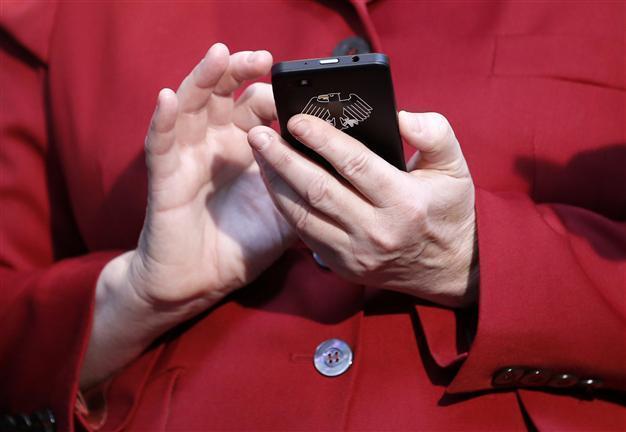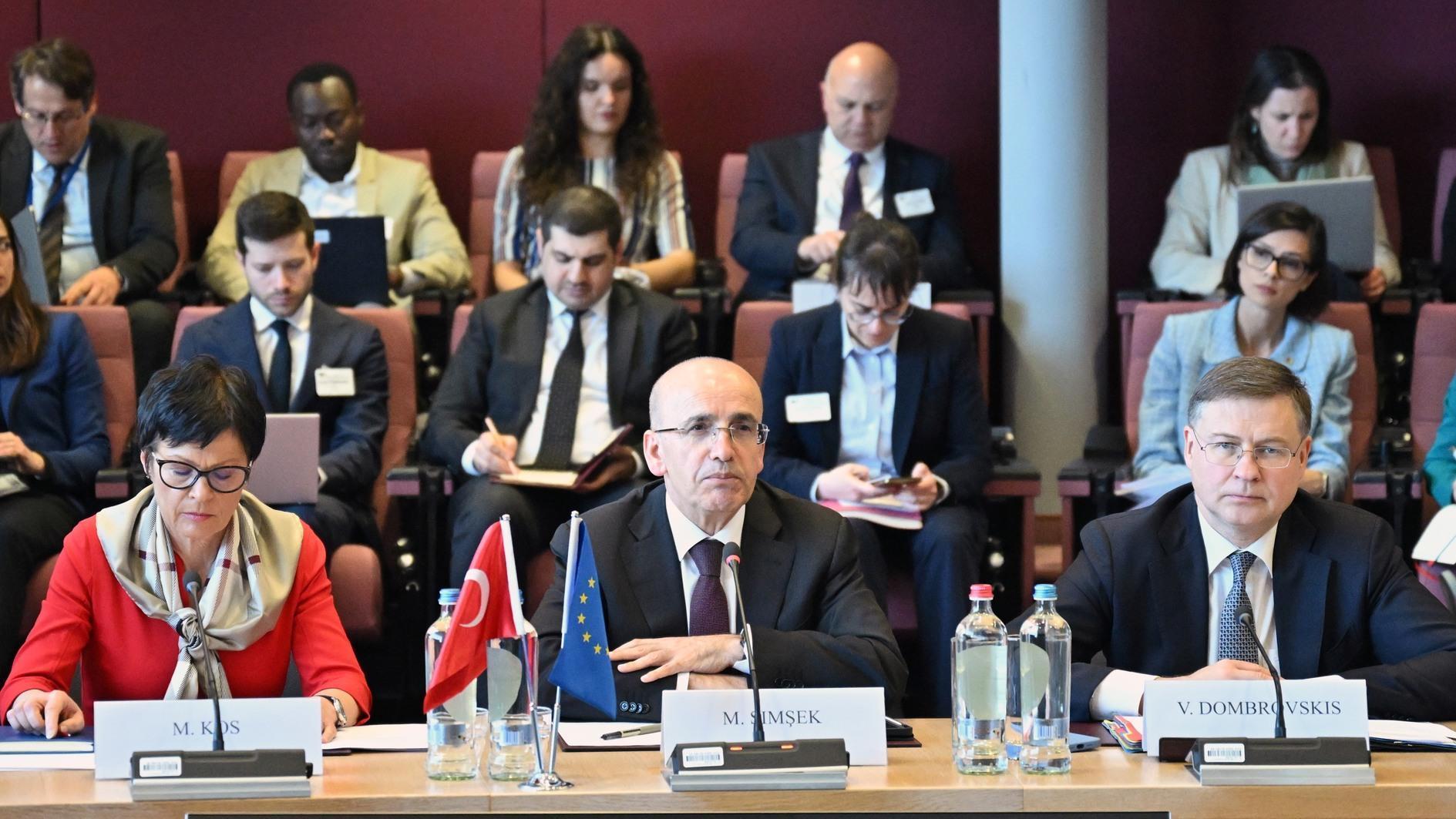Spying row pits US against European allies
BRUSSELS - Agence France-Presse

German Chancellor Angela Merkel holds a BlackBerry Z10 smartphone featuring high security Secusite software, used for governmental communication, at the booth of Secusmart during her opening tour at the CeBit computer fair in Hanover in this March 5, 2013 file photo. REUTERS Photo
U.S. relations with European allies were put to a harsh test on Oct. 24 as Germany summoned Washington’s ambassador amid growing European unrest at the latest reports of covert U.S. surveillance in Europe, which even included tapping into Chancellor Angela Merkel’s phone.Foreign Minister Guido Westerwelle met with U.S. envoy John B. Emerson yesterday after news broke out that U.S. National Security Agency (NSA) may have monitored Merkel’s phone, a claim which Washington said was currently not true, but failed to deny completely considering past activities.
The meeting with the envoy followed a phone call from Merkel to U.S. President Barack Obama a day earlier, in which she demanded answers on the claims, warning this would be “breach of trust” between international partners.
The allegations sparked anger in Germany and Merkel’s spokesman Steffen Seibert said in a statement that she had “made clear that she unequivocally disapproves of such practices, should they be confirmed, and regards them as completely unacceptable”.
Berlin daily Der Tagesspiegel, citing government sources, reported that the alleged tapping targeted not Merkel’s official mobile phone, but a separate device she uses for conducting business with her Christian Democratic Union party.
Summit agenda overtaken
Merkel was scheduled to meet with the French President Francois Hollande yesterday to discuss the spying claims, similar to claims that were reported only days before in France, where U.S. authorities were accused of running spying operations. Washington, however, branded the reports that it had spied on millions of French citizens as inaccurate, but Hollande has pressed for EU leaders to take up the issue as part of a wider effort for data protection.
The meeting was set to take place on the sidelines of a scheduled two day EU summit, officially themed around boosting employment and the digital economy, which looked certain to lose its focus due to the ongoing spying allegations.
While Berlin and Paris were likely to find sympathy among many of the EU states, domestic security issues are not an area in which the EU has any jurisdiction. The best that could be hoped for was an expression of support from leaders and calls for a full explanation from the United States.
The summit, initially expected to be “a routine affair,” according to a senior diplomat, was hijacked by the escalating feud.
Data protection
The EU’s executive said yesterday the latest reports of covert U.S. surveillance in Europe showed it was time for “a strong and united” stand on data protection.
“Data protection must apply no matter if it concerns the e-mails of citizens or the mobile phone of Angela Merkel,” said EU Justice Commissioner Viviane Reding, quoted by her spokeswoman.
“Now is the time for action and not just declarations at the EU summit,” she said, referring to a data protection law which has been blocked for months because of differences between the 28 member states.
The furor over the alleged espionage could encourage member states to back tougher data privacy rules currently being drafted by the European Union. The European Parliament this week approved an amended package of legislation that would overhaul EU data protection rules that date from 1995.
The new rules would restrict how data collected in Europe by firms such as Google and Facebook is shared with non-EU countries, introduce the right of EU citizens to request their digital traces be erased, and impose fines of 100 million euros or more on rule breakers. If an agreement can be reached early next year, the laws could possibly come into force in 2015.
















